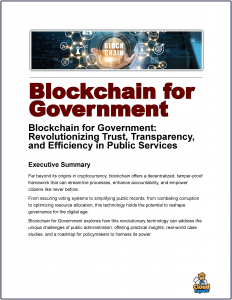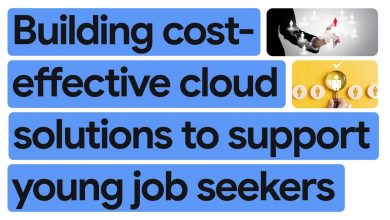 As Coindesk reported the Dubai Land Department launched Prypco Mint, the Middle East’s first government-backed real estate tokenization platform on the XRP Ledger (XRPL).
As Coindesk reported the Dubai Land Department launched Prypco Mint, the Middle East’s first government-backed real estate tokenization platform on the XRP Ledger (XRPL).
The new platform lets investors buy fractional ownership in Dubai property, with title deeds tokenized on the XRP Ledger network.
This is part of a $16 billion ambition to digitize 7% of Dubai’s real estate market by 2033, and demonstrates how the deployment of Blockchain national platforms can play a direct enabling role in boosting the economy.
Blockchain vLEIs
This scenario and technology also highlights the complementary role for ‘LEIs’, Legal Entity Identifiers.
The integration of verifiable Legal Entity Identifiers (vLEIs) with blockchain technology is revolutionizing digital identity management for financial services, digital assets, and trade. By combining vLEIs’ cryptographic security with blockchain’s immutability, this synergy enhances trust and efficiency in digital economy systems.
vLEIs are cryptographically secure digital credentials based on the Legal Entity Identifier (LEI) standard from the Global Legal Entity Identifier Foundation (GLEIF).
They extend the 20-character LEI code with verifiable credentials and decentralized key management via the Key Event Receipt Infrastructure (KERI), enabling secure identity verification. Blockchain, a decentralized ledger, supports smart contracts and tokenized assets on platforms like Ethereum, making it ideal for vLEI integration to bridge traditional and decentralized finance.
For example TradeGo, a pioneer in vLEI issuance, supports digital trade in Asia-Pacific, and as described in this press release (PDF) :
“Users of the TradeGo platform span industry players across bulk commodities, shipping, and finance. By embedding vLEI credentials across its blockchain-based solutions – which include electronic bills of lading (eBL), e-contracts, digital payments, and electronic bunkering – TradeGo aims to simplify cross-border commodity trading, shipping, and payments.”
Chainlink’s ACE automates compliance for digital assets, while Ubisecure’s RapidLEI would work with partners like Provenant, a digital identity platform, to issue verifiable Legal Entity Identifiers (vLEIs).
A partnership like this would leverage RapidLEI’s expertise in automated LEI issuance and Provenant’s infrastructure for managing decentralized digital identities to deliver secure, cryptographically verifiable credentials for organizations.
In this white paper Chainlink and the GLEIF describe how cross-chain enabled digital identity, powered by the verifiable Legal Entity Identifier (vLEI), can bring scalable, automated KYC to both traditional and decentralized finance. They show how cryptographic proofs and verifiable credentials can reduce duplication, preserve privacy, and establish trusted identity across platforms and jurisdictions—a critical foundation for compliant DeFi, stablecoins, and tokenized assets.
Digital Economy Platform
Blockchain-based Verifiable Legal Entity Identifiers (vLEIs) represent a transformative approach to enhancing trust, transparency, and efficiency in real estate transactions, as highlighted in the Dubai case study.
By leveraging the immutable and decentralized nature of blockchain technology, vLEIs provide a secure and verifiable means of establishing the identity and authority of parties involved in property transactions, significantly reducing the risk of fraud and errors. In the real estate sector, where trust and authenticity are paramount, vLEIs can streamline processes such as title transfers, escrow agreements, and contract execution by ensuring that all parties are legitimate and their credentials are tamper-proof.
Furthermore, the integration of vLEIs with smart contracts enables automated, secure, and transparent workflows, minimizing intermediaries and expediting transaction timelines. As the real estate industry continues to embrace digital transformation, adopting blockchain vLEIs offers a robust foundation for building a future where property transactions are faster, safer, and more reliable, ultimately fostering greater confidence among buyers, sellers, and other stakeholders.
The Role of Government
Governments play a pivotal role in the adoption and implementation of blockchain-based Verifiable Legal Entity Identifiers (vLEIs) within the real estate sector. As stewards of public trust and regulatory frameworks, governments can facilitate the integration of vLEIs by establishing clear standards and legal recognition for these digital credentials.
This involves updating existing laws or creating new regulations to ensure that vLEIs are legally binding and interoperable across jurisdictions, thereby enabling seamless verification of identities and credentials in real estate transactions.
Governments can also act as issuers or overseers of vLEIs, ensuring that only authorized entities receive these credentials, which enhances the integrity of the system. By partnering with blockchain networks and organizations like the Global Legal Entity Identifier Foundation (GLEIF), governments can support the development of standardized protocols for vLEI issuance and verification, tailored to real estate use cases such as property title registries or escrow processes.
Additionally, they can incentivize adoption through pilot programs, grants, or tax benefits for real estate firms that implement vLEI-based systems, fostering innovation while maintaining oversight to prevent misuse. Moreover, governments can leverage blockchain vLEIs to enhance public services, such as maintaining tamper-proof land registries or streamlining property tax collection, which directly benefits the real estate ecosystem.
By ensuring data privacy, cybersecurity, and compliance with anti-money laundering (AML) and know-your-customer (KYC) regulations, governments can build public confidence in these systems. Ultimately, their active involvement ensures that blockchain vLEIs align with national and international legal frameworks, enabling secure, transparent, and efficient real estate transactions while protecting stakeholders from fraud and disputes.




